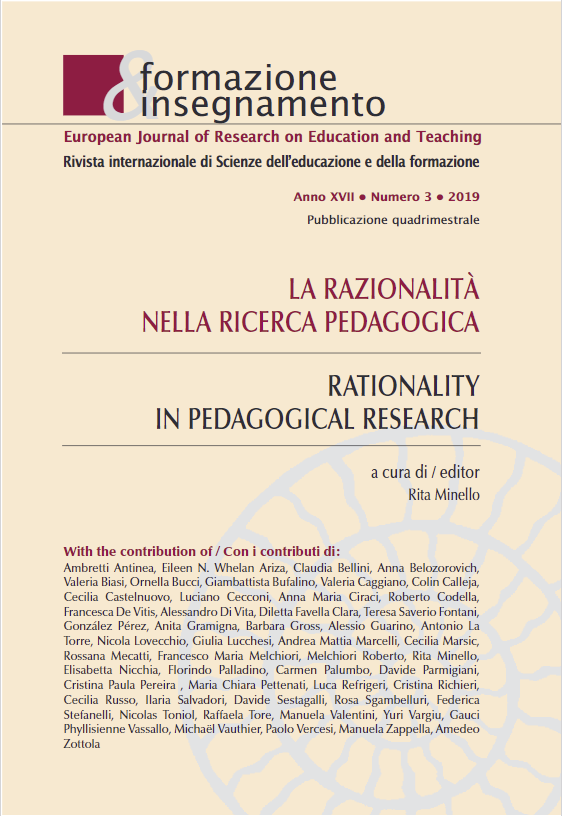Innovative teachers and the research of common didactic models. A case study
DOI:
https://doi.org/10.7346/-fei-XVII-03-19_02Abstract
Although innovation has become a common priority in educational systems, generally schools are still considered as resistant to innovation. This is partly a consequence of innovation being still defined as something ‘exceptional’, as a process in which only well-suited schools or highly motivated or skilled teachers engage. Understanding these topics OECD has realized a Study on Pedagogies and teachers’ professional competences where pedagogies have been defined as “specific configurations of teaching and learning in interaction”, with common principles, named “Seven Principles of Learning”. This article sets out a Case study, qualitative project research, on the innovation in teaching and student learning, also utilized the OECD model, through the analysis of the project called “Scuola Senza zaino. Per una scuola comunità”. This qualitative Case study explores some factors that characterize the pedagogical approaches used by the project “Scuola Senza Zaino” and to what extent they match OECD learning principles. The scope is to analyze, with qualitative comparative research, if it supports the effective implementation of OECD learning principles and if the interaction of the two dimensions -the hardware of physical spaces and materials, and the conceptual one of pedagogical strategies and methods- improve student learning and social interaction.
Downloads
Published
How to Cite
Issue
Section
License
Copyright (c) 2019 Pensa MultiMedia

This work is licensed under a Creative Commons Attribution 4.0 International License.
Formazione & insegnamento is distributed under Attribution 4.0 International (CC BY 4.0).
For further details, please refer to our Repository & Archiving Policy, as well as our Copyright & Licensing Terms.





